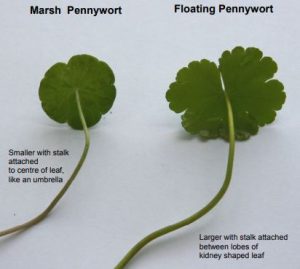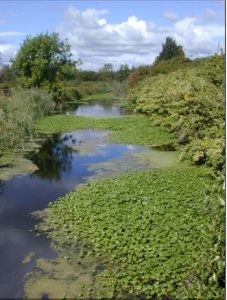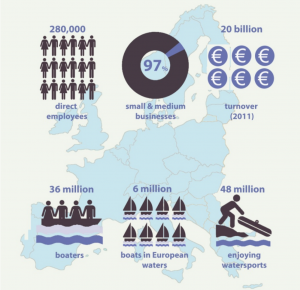The Burton Waters Boat Club wants the members to enjoy their boating in a fun and relaxed manner, this can only be achieved when you are prepared. For that reason we feel boat safety is something that everyone should be aware of.
Boat Safety Scheme
The Boat Safety Scheme, or BSS, is a public safety initiative owned by the Canal & River Trust and the Environment Agency.
About JNCC
_______________________________________________________________________________________________
Boat Safety
"Most boat-related incidents involve someone on board doing something to cause it, or not doing something to avoid it." BoatSafetyScheme.org.
For further information see the links below:
Remember: Boating, like other motorsports, isn't utterly risk free. Boaters often face more dangers than land-based drivers, if only because there is less public education on boat safety. Boaters often operate their vessels without proper precautions, including sufficient floatation devices, restraints, or sobriety, which can lead to terrible accidents, injuries, and deaths.
The Environment Agency and the Canal and River Trust take the issue of boater safety very seriously. Both organisations would like to remind the boating community that boaters have ownership of their mooring safety throughout the year. There can be extremes of weather, especially during the winter months and in order to manage flood risk successfully, water levels on the River Witham can vary significantly, particularly in the Boston area when discharging large volumes of water.
_______________________________________________________________________________________________
Environmental Issues
A summary of potential effects of water-based recreation
- Engine emissions
- Noise disturbance
- Anti-fouling paint
- Sewage discharge and other waste discharges
- Disturbance to wildlife
- Erosion and turbidity
A large amount of impairment to wildlife is caused by smaller, less noticeable aspects of boats. Chemicals used to clean, protect, and run watercraft often leach into the water, severely impacting the environment and weakening or killing the wildlife.
The presence of vessels seemed to increase the growth of algae and kick up sediments, both of which obstruct sunlight and spoil the water.
The following practices are essential:
- Have a supply of rags on board to clean up oil and fuel spills as soon as they occur.
- Dispose of used oil and filters through the proper channels.
- Be careful with portable fuel tanks. Boaters should fill them on shore, never overfill them, and secure and close them when not in use.
- Wax often. Wax on fiberglass prevents surface dirt from building up and reduces the need for harsh detergents when washing.
- Avoid abrasive cleaning tools. Soft sponges and freshwater applied to topsides should sufficiently clean the vessel.
- Use natural and non-toxic cleaning solutions.
- Choose alternatives to anti-fouling paint. Regular paint and wax or storing the vessel on land are viable options.
- Additionally, boat maintenance is vital in both increasing a boat’s life span and protecting the environment.
Source: www.eponline.com Mar 27, 2017
Other Information
_______________________________________________________________________________________________
_______________________________________________________________________________________________
Boating Industry Figures
Facts & Figures
The boating industry in Europe is a dynamic and competitive sector and a significant contributor to the European economy. The industry is made up of boatbuilders, engine manufacturers, equipment manufacturers, trade and service providers and consists of approximately 32,000 companies, directly employing over 280,000 people. Prior to the financial crisis, the boating industry achieved an annual average growth rate of 6% and a turnover of over 23 billion euros (today its turnover is approximately 20 billion euros).
The boating industry is mainly made up of small and medium-sized enterprises (97% of businesses are SMEs) and a small number of large companies (over 1 000 employees). On its own, the boatbuilding sector consists of 3,000 companies employing over 66,000 people. The production of recreational craft is very diverse and ranges from series to one-off boats, which are built-to-order.
The boating industry is also a highly internationalised sector. Traditionally, European companies have exported mainly to other countries within the EU and to the US where the export ratio is 3:1 in Europe’s favour. New markets are emerging, however, and European companies are increasingly exporting to Asia, South America and Russia.
With over 27,000 km of inland waterways and more than 70,000 km of coastline, Europe offers the perfect environment for the 48 million European citizens who regularly participate in recreational marine activities (36 million of whom are boaters), as well as countless numbers of tourists. Over 6 million boats are kept in European waters while 4,500 marinas provide 1.75 million berths both inland and in coastal areas.
Source: www.europeanboatingindustry.eu
Boat Sales Statistics Programme
In view of the lack of reliable and accurate statistics for boat sales in Europe and in most of the export markets, boatbuilding companies proposed that EBI run a specific programme.
The Boat Sales Statistics Programme started in 2015 and is fully compliant with the EU and US competition Law. It is run by European Boating Industry for a group of companies meeting the participation criteria set in the Competition Law Guidelines of the Programme.
Under this Programme, companies provide sales information to an independent third party contracted by European Boating Industry, which will process, aggregate and disseminate the anonymised results to the Participating Companies for statistical purposes. The report, available only to the participating companies, is a an important tool for business intelligence.
For more information, please contact sd@europeanboatingindustry.eu



